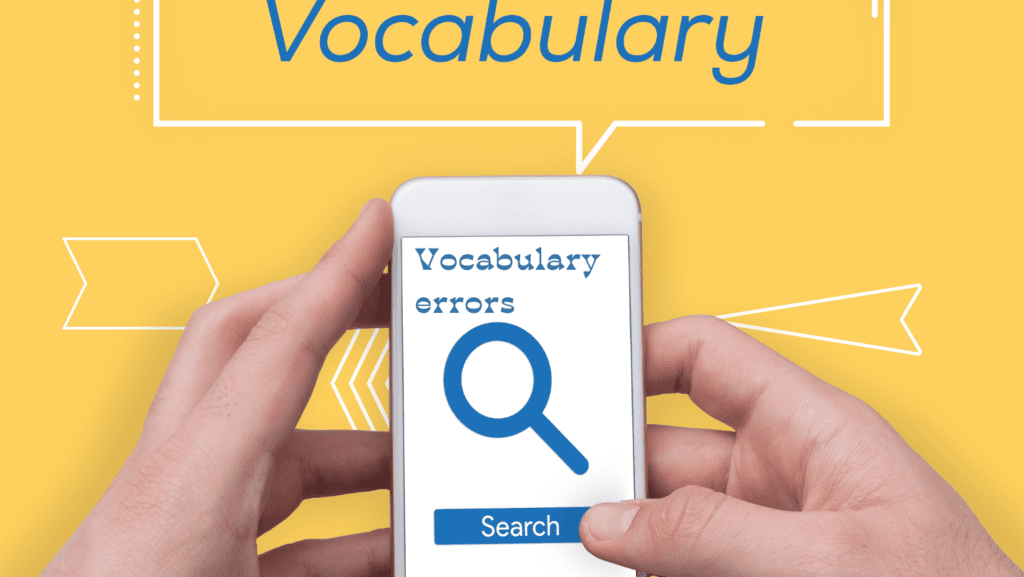
Here are some points to develop regarding common errors to avoid in English and how to correct them:
Grammar errors: Learners often make grammar mistakes such as incorrect use of verb tenses, confusion between personal pronouns, or omitting articles. It is essential to understand the basic grammar rules and practice regularly to master them. A helpful resource is to consult online grammar guides and engage in practical exercises to reinforce knowledge .
Here are some points to develop regarding grammar errors commonly made by language learners and how to address them:
Incorrect verb tenses: Learners often struggle with using the appropriate verb tense in a sentence. They may confuse present and past tenses or fail to use the correct form of irregular verbs. To overcome this, it is crucial to study and understand the different verb tenses in English. Regular practice through exercises, conversation, and reading can help reinforce the correct usage of verb tenses [1].
Confusion between personal pronouns: Learners may encounter difficulties in using personal pronouns correctly, especially when it comes to subject and object pronouns. It is important to understand the role of each pronoun and how they relate to the subject or object in a sentence. Regular practice in constructing sentences and paying attention to pronoun usage can help improve accuracy .
Omitting articles: Learners may often omit or misuse articles (such as “a,” “an,” and “the”) in their sentences. Understanding the rules for using definite and indefinite articles is essential for clear and accurate communication. Engaging in activities that focus on article usage, such as gap-fill exercises or sentence rewriting, can help learners develop a better understanding of when and how to use articles [1].
To improve grammar proficiency, it is recommended to consult reliable online grammar guides, participate in language exchange programs, and practice regularly. By developing a solid foundation in grammar rules and actively applying them through exercises and real-life communication, learners can enhance their language skills and minimize grammar errors.
Pronunciation errors: Learners may struggle with correctly pronouncing certain English sounds, which can lead to misunderstandings in communication. It is helpful to listen to native speakers, imitate their pronunciation, and practice speaking English aloud. Online pronunciation guides and language exchange platforms can also provide valuable support
Here are some points to develop regarding pronunciation errors commonly made by learners and how to address them:

Difficulties with specific sounds: Learners may struggle with correctly pronouncing certain English sounds, which can lead to misunderstandings in communication. For example, the “th” sound and different diphthongs can be challenging for ESL learners, especially if these sounds do not exist in their native language. Thai speakers, for instance, may find it tricky to articulate consonant clusters like “dr” and “sm” .
Importance of listening to native speakers: To improve pronunciation, it is helpful to actively listen to native speakers and pay attention to how they pronounce words and sounds. By listening carefully, learners can develop their ability to differentiate between similar sounds and reproduce them accurately .
Imitating native pronunciation: Learners can benefit from imitating the pronunciation of native speakers. By observing and mimicking their intonation, stress patterns, and articulation, learners can develop a more authentic and natural pronunciation. It is essential to practice regularly and strive for accuracy and clarity in spoken English .
Speaking practice: Regular practice of speaking English aloud is crucial for improving pronunciation. Engaging in conversations, participating in language exchange activities, or finding a speaking partner can provide opportunities to apply and refine pronunciation skills. The more learners practice speaking, the more comfortable and confident they become in using English pronunciation effectively .

Online resources: Online pronunciation guides and language exchange platforms can be valuable tools for learners. Pronunciation guides offer audio samples, explanations, and exercises to help learners target specific sounds and improve their pronunciation. Language exchange platforms allow learners to connect with native speakers for conversation practice and receive feedback on their pronunciation .
In short, to improve English pronunciation, it is essential to listen carefully to native speakers, imitate their pronunciation, practise speaking regularly and use online resources such as pronunciation guides and language exchange platforms. With practice and continuous effort, learners can improve their command of English pronunciation and avoid misunderstandings when communicating…
Vocabulary errors: Students often use incorrect or inappropriate vocabulary, resulting in less accurate or effective communication. Building vocabulary through extensive reading, using a dictionary, and studying word collocations can help improve lexical choices. Additionally, regularly expanding vocabulary by learning new words and phrases will enhance language skills .

Vocabulary errors are common among students and can lead to less accurate or effective communication. Building a strong vocabulary is crucial for expressing oneself with precision and clarity. One way to improve lexical choices is through extensive reading, which exposes learners to a variety of words and their usage . Using a dictionary is also beneficial as it helps clarify word meanings and provides additional examples of usage. Studying word collocations, or the typical combinations of words, can further enhance vocabulary skills and enable learners to express themselves more effectively.
In addition to these strategies, regularly expanding vocabulary by learning new words and phrases is essential. This can be achieved through various methods, such as using vocabulary-building resources, engaging in vocabulary exercises, and actively seeking opportunities to encounter and practice new words. By consistently working on vocabulary development, language learners can enhance their language skills and communicate more proficiently.
It’s important to note that vocabulary acquisition is an ongoing process, and learners should embrace a lifelong commitment to expanding their vocabulary in order to continually improve their language abilities.
Sentence structure errors: Learners may struggle with constructing grammatically correct and coherent sentences. It is important to practice sentence formation, paying attention to subject-verb agreement, word order, and the use of connectors. Engaging in conversation, writing exercises, and seeking feedback from native speakers or language tutors can greatly assist in improving sentence structure

Sentence structure errors can hinder the clarity and effectiveness of written communication. One common error is a comma splice, which occurs when two independent clauses are incorrectly joined by a comma alone. For example, “The project ran over the deadline, data processing was extensive.” To fix this error, there are three possible solutions:
(1) splitting the clauses into two separate sentences, e.g., “The project ran over the deadline. Data processing was extensive.” (
2) using a coordinating conjunction such as “and,” “but,” or “or” to join the clauses, e.g., “The project ran over the deadline, and data processing was extensive.”
(3) using a semicolon to separate the clauses, e.g., “The project ran over the deadline; data processing was extensive.”
Understanding the basic parts of a sentence is essential for constructing grammatically correct sentences. Every sentence requires at least a verb and a subject. The verb represents the action, while the subject is the noun performing the action. For instance, in the sentence “I am waiting,” the verb is “am waiting,” where “waiting” is the main verb in the present continuous tense, and “am” is the auxiliary verb used for conjugation .
To improve sentence structure, it is important to focus on constructing clear and concise sentences. Professional writers often pay attention to elements such as complicated sentence structure, misplaced modifiers, or confusing delivery that can obscure the intended meaning of a sentence .
I hope this provides you with a better understanding of sentence structure errors. If you have any further questions, feel free to let me know..
Cultural and idiomatic errors: Understanding cultural context and idiomatic expressions can be challenging for language learners. It is helpful to immerse oneself in English-speaking environments, watch movies or TV shows, and read books or articles to familiarize oneself with the culture and idiomatic expressions. Additionally, language exchange with native speakers can provide insights into cultural nuances and idiomatic usage .

Cultural and idiomatic errors can often occur when non-native English speakers respond to native speakers. These errors can be subtle yet significant, leading to misunderstandings or awkward interactions. Native speakers may pick up on cultural nuances or idiomatic expressions that are not correctly understood or used by non-native speakers. This can create a sense of confusion or give off strange vibes, even if the grammar is technically correct .
Idiomatic expressions, in particular, can be challenging to translate directly from one language to another. The meaning and cultural connotations associated with idioms may not be easily grasped through literal translation. For example, idiomatic expressions in English like “break a leg” or “let the cat out of the bag” have figurative meanings that may not be understood if translated word-for-word into another language .
The problematicity of translating cultural idiomatic expressions from English into other languages, such as Arabic, has been recognized by scholars. It highlights the need for careful consideration and understanding of cultural context when dealing with idiomatic expressions in translation .
I hope this information helps you understand the challenges related to cultural and idiomatic errors. If you have any further questions or need more clarification, please let me know.
Remember, consistent practice, exposure to the language, and seeking guidance from language resources and experts can greatly contribute to correcting common errors and improving English proficiency. FOR MORE VISIT US HERE